Frustrated Ambitions The 10 Stages of How the Roman Republic Became an

Elections in the late Roman Republic how did they work? HistoryExtra
The Roman Republic was a form of government in Rome that lasted from around 509 B.C. to 27 B.C. According to ancient Roman writers, the Roman Republic emerged in 509 B.C., after the last king of.
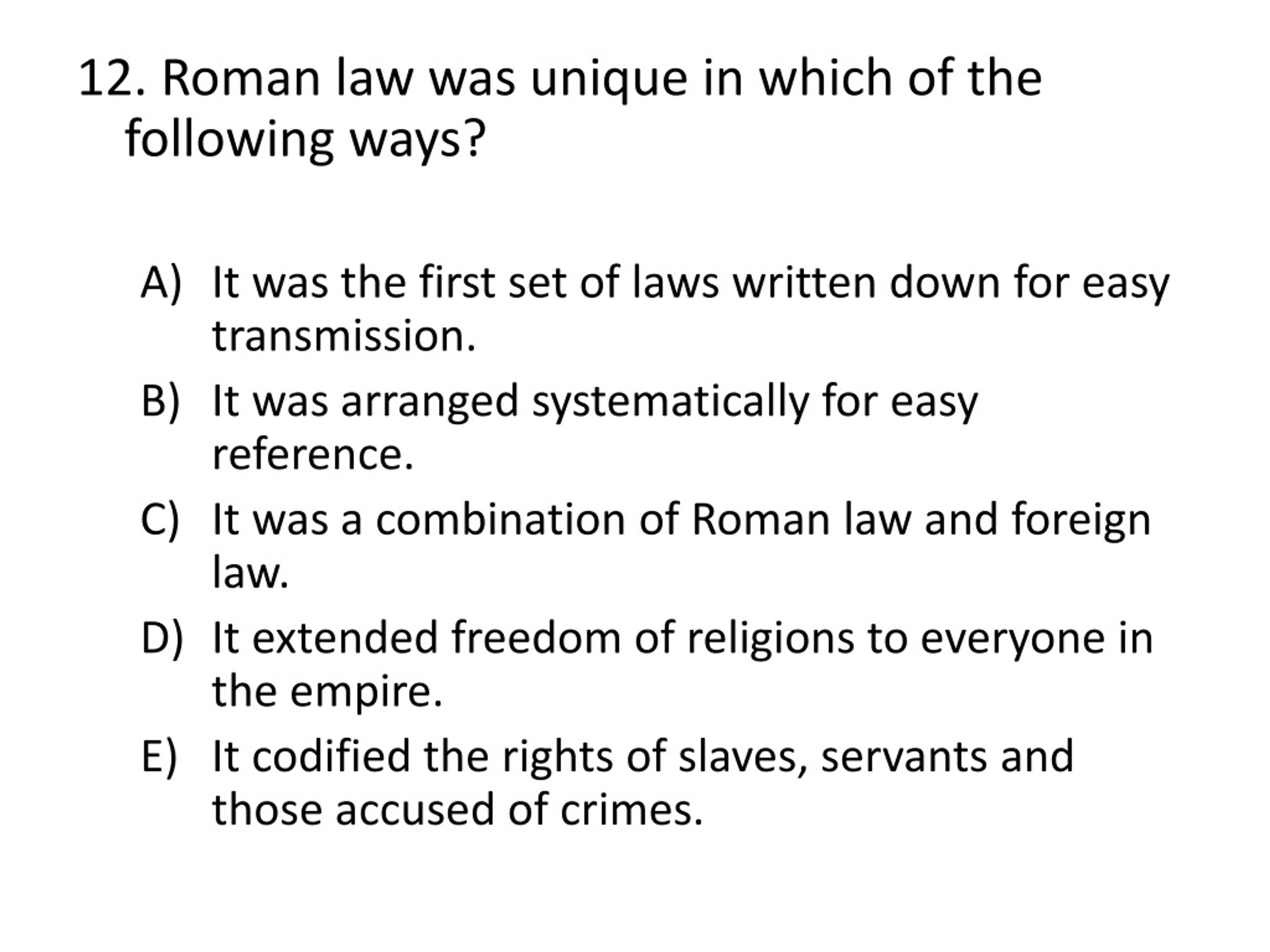
PPT 1 . Which of the following explains why the Roman Republic failed
The Roman Republic was a democracy. Its government consisted of the Senate and four assemblies: the Comitia Curiata, the Comitia Centuriata, the Concilium Plebis, and the Comitia Tributa. Nevertheless, in emergency situations the Senate and consuls would appoint a temporary dictator to rule for a limited amount of time.
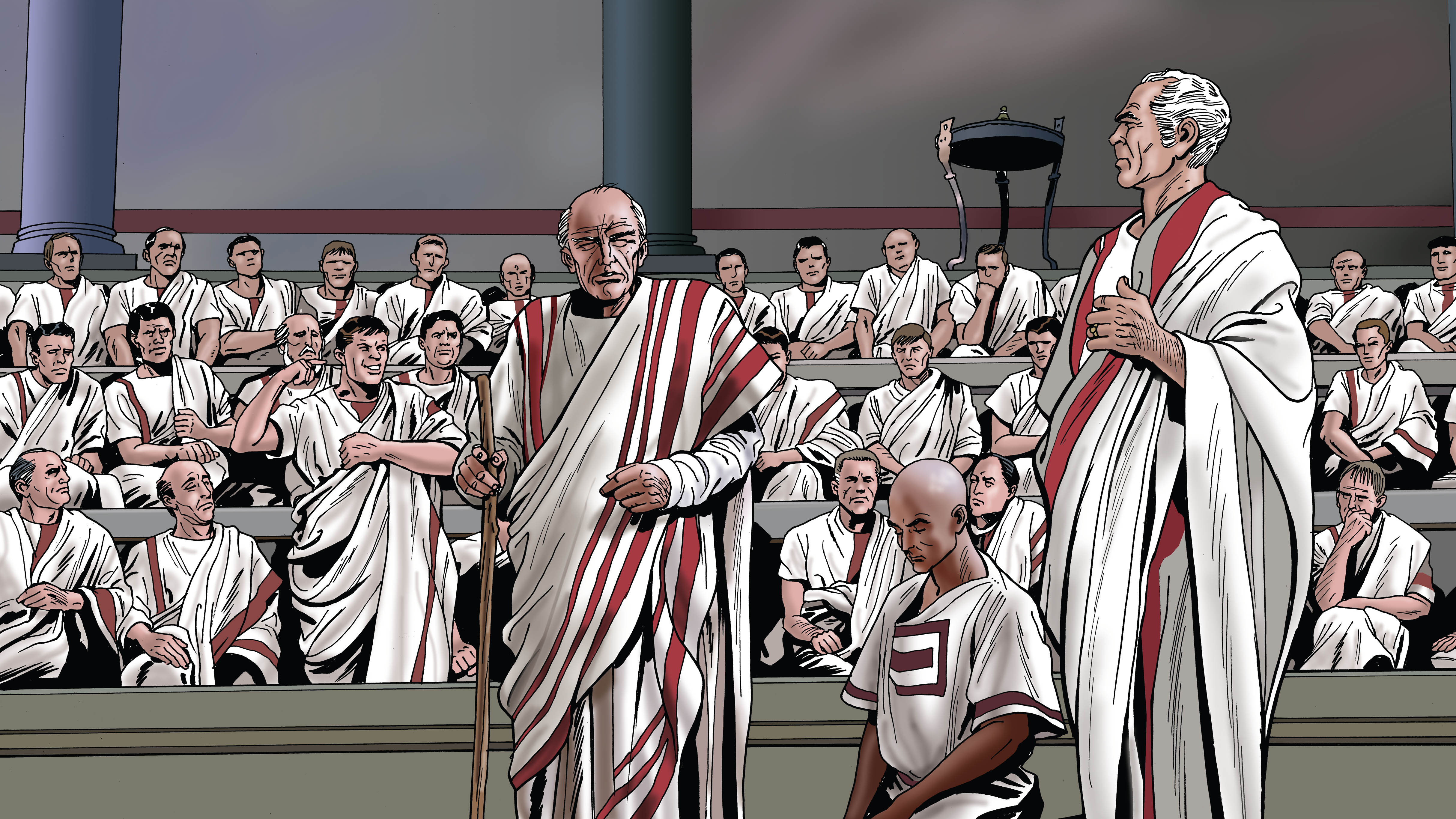
Roman Republic The rise and fall of ancient Rome's government Live
Right around the time Jesus was born, ancient Rome's 500-year-old republic failed. Its traditions of representative elections, checks and balances, tolerance, and freedoms of movement and expression were swept away, never to recover. In their place rose the Roman Empire, an increasingly authoritarian and Orwellian structure that saw state.

The Rise of Rome. Lecture 6 of 6. Why the Democracy Failed
The Roman Republic failed as a representative democracy for 3 major reasons. First, over time population growth destabilized the balance of power between the popularis and opitimates political factions. Second, during the late Roman Republic the Roman military was no longer representative of the people. Third, there was a major flaw in the.
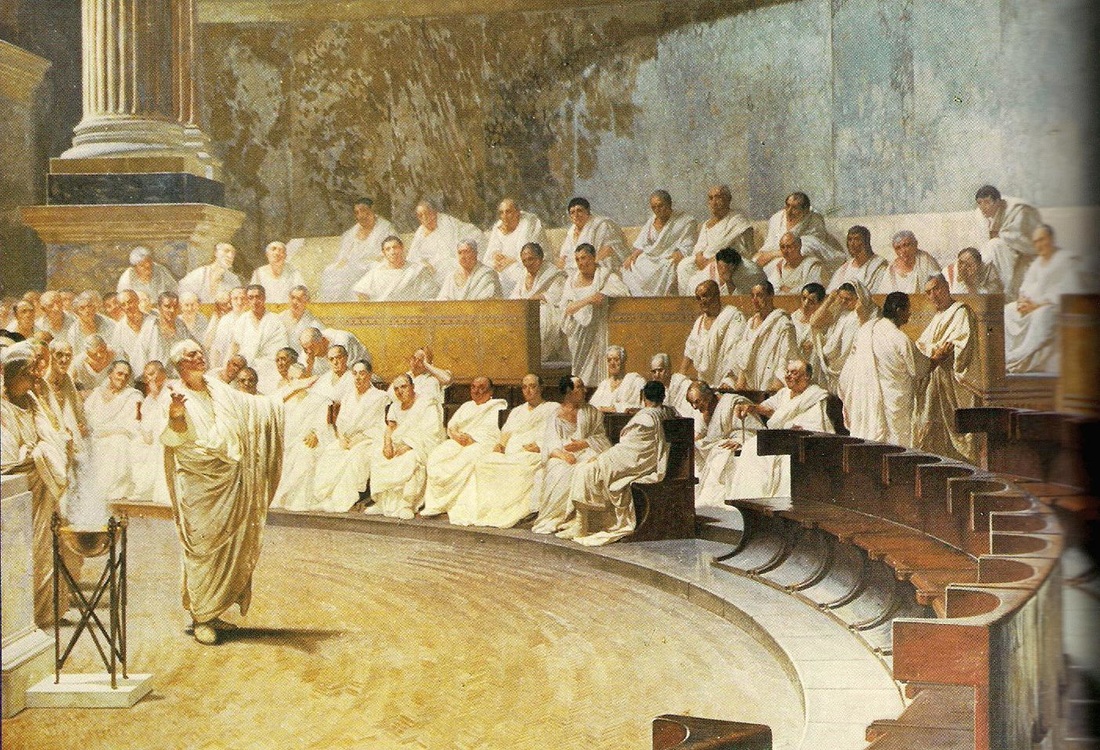
Ancient Rome The Pursuit of Democracy
The Roman Republic was founded in 509 B.C.E. after the last Etruscan king that ruled Rome was overthrown.Rome's next government served as a representative democracy in the form of a republic. Initially, Rome's wealthiest families, the patricians, held power and only they could hold political or religious offices. Everyone else was considered plebeian, and no member of this group could hold.

PPT The Fall of the Roman Republic PowerPoint Presentation, free
A broken seat of government. Sean Pavone/Shutterstock. So far, we've painted a picture of absolute mayhem in Rome's streets. However, the Roman Republic still "functioned" through the 1st century B.C.E. That is to say, "equality under the law" — a familiar phrase today — was still the stated, accepted norm, as US History.com outlines.

PPT Ancient Rome PowerPoint Presentation, free download ID2317453
The crisis of the Roman Republic was an extended period of political instability and social unrest from about 134 BC to 44 BC that culminated in the demise of the Roman Republic and the advent of the Roman Empire.. The causes and attributes of the crisis changed throughout the decades, including the forms of slavery, brigandage, wars internal and external, overwhelming corruption, land reform.

Why the Roman Republic Fell YouTube
Roman revolution. In 133 BC, Rome was a democracy. Little more than a hundred years later it was governed by an emperor. This imperial system has become, for us, a by-word for autocracy and the.
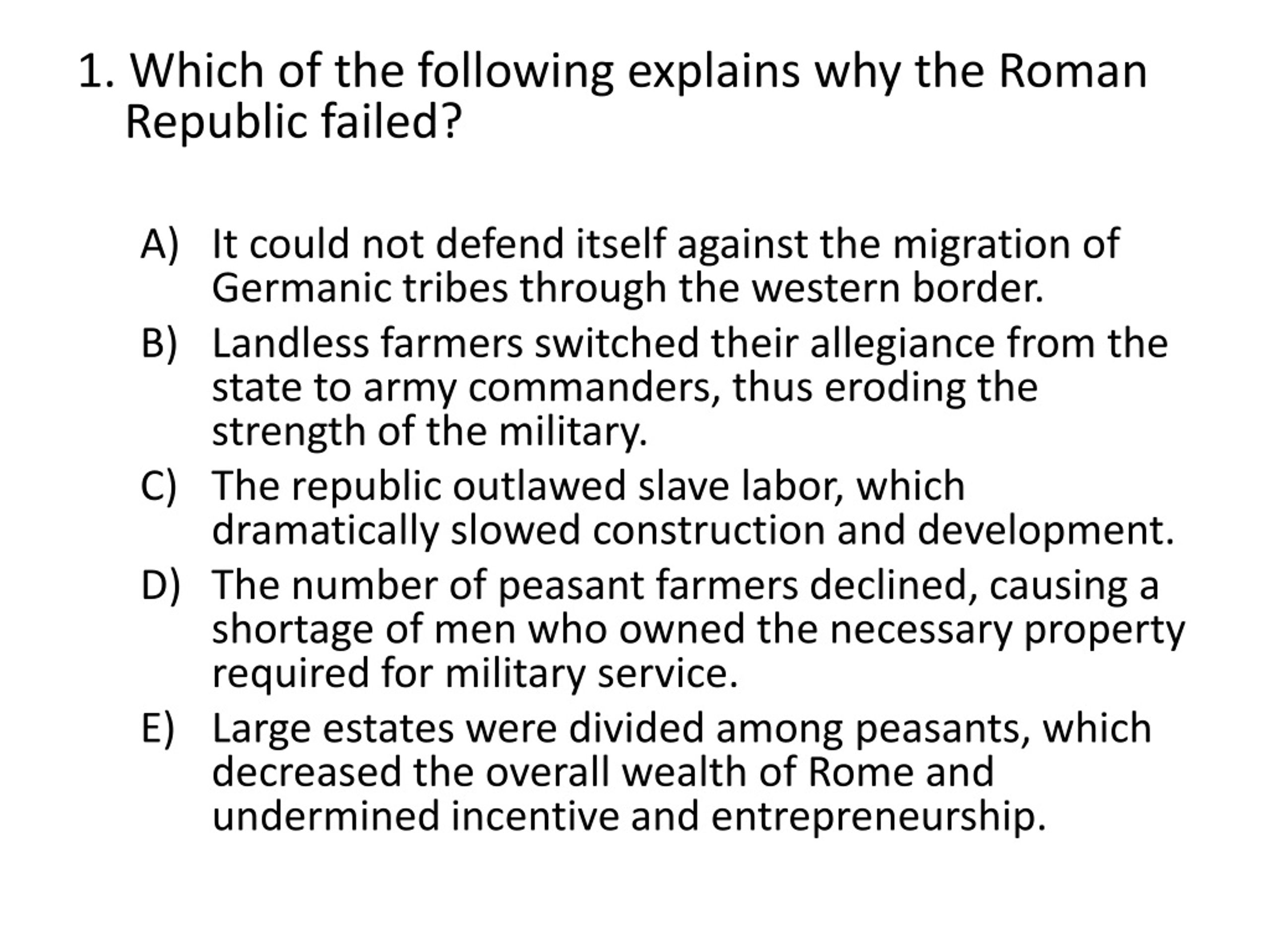
PPT 1 . Which of the following explains why the Roman Republic failed
Representative democracies are designed to cool down the passions of a pure democracy and find representatives who can think more long-term and craft policies that solve problems in ways that also.
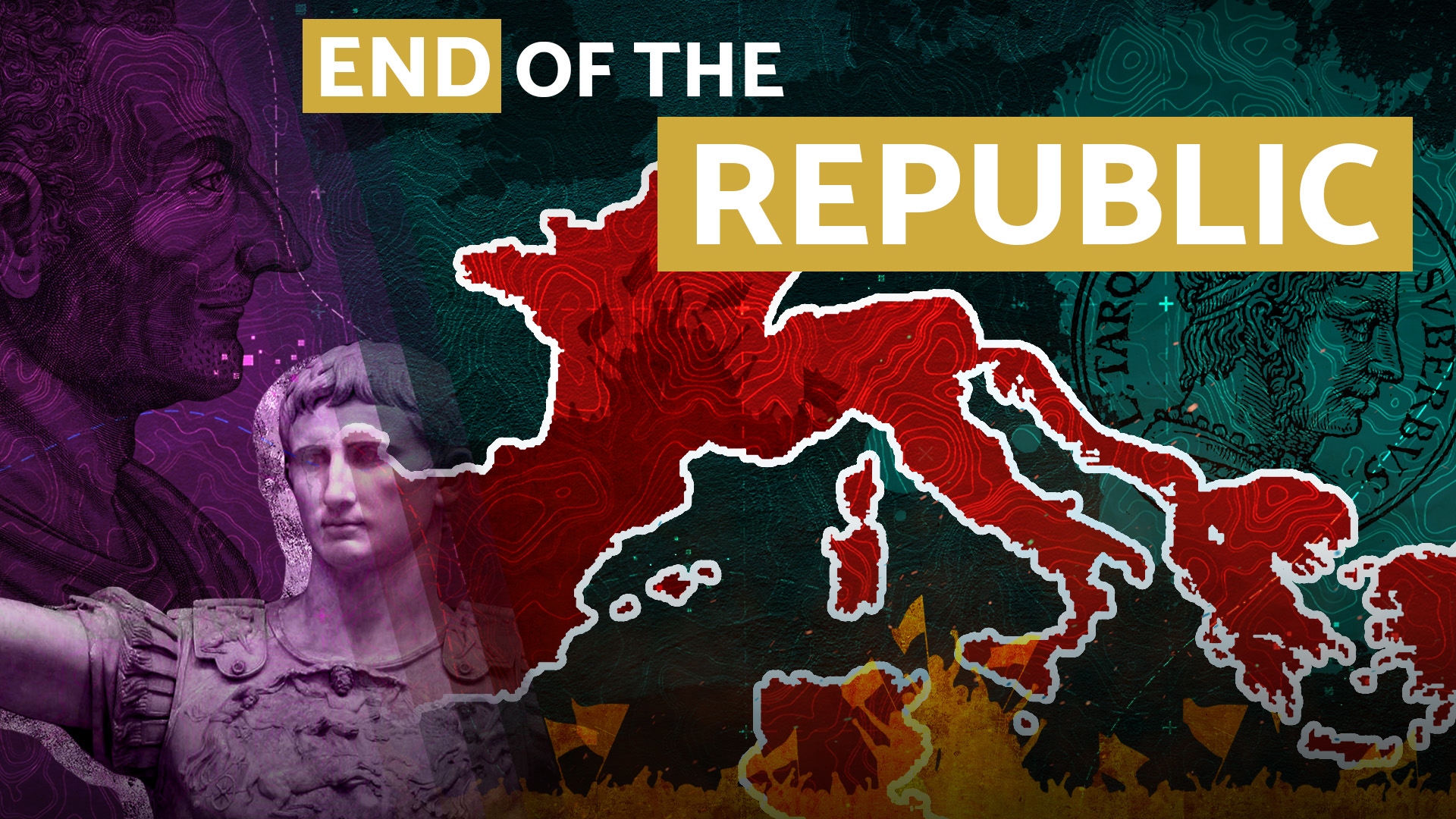
Ep. 63 Why The Roman Republic Collapsed The Why Minutes
The Roman Republic. At about the same time that popular government was introduced in Greece, it also appeared on the Italian Peninsula in the city of Rome. The Romans called their system a rēspūblica, or republic, from the Latin rēs, meaning thing or affair, and pūblicus or pūblica, meaning public—thus, a republic was the thing that belonged to the Roman people, the populus romanus.
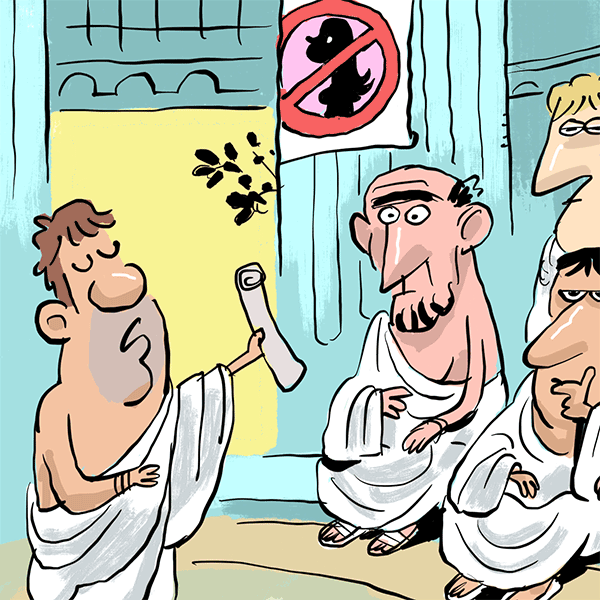
The Roman Republic How Did it Work Library For Kids
Welcome to Rome in the first century B.C.E. The republic that had existed for over 400 years had finally hit a crisis it couldn't overcome. Rome itself wouldn't fall, but during this period it.
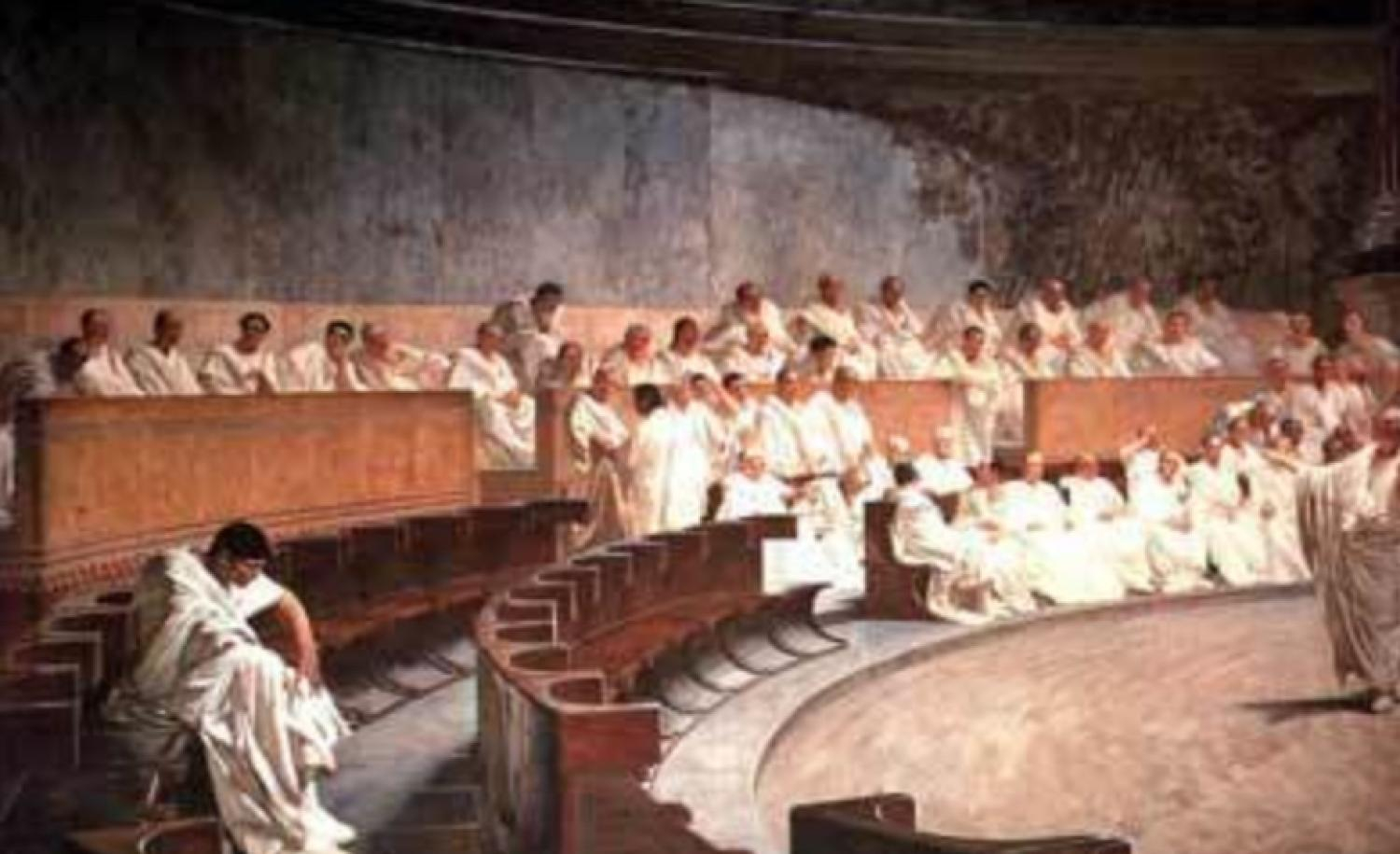
In this lesson, you learned that the Roman republic, №15231088, 22.11.
The Roman Republic describes the period in which the city-state of Rome existed as a republican government, from 509 B.C.E. to 27 B.C.E. Rome's republican government is one of the earliest examples of representative democracy in the world.. Prior to the republic, Etruscan kings who lived nearby in central Italy ruled Rome. Once the last of these kings was overthrown in 509 B.C.E., Rome's.

schmidt, hans w Cicero's Speech Attacking Catilina in the Roman
The Roman Republic (Latin: Res publica Romana [ˈreːs ˈpuːblɪka roːˈmaːna]) was the era of classical Roman civilization beginning with the overthrow of the Roman Kingdom (traditionally dated to 509 BC) and ending in 27 BC with the establishment of the Roman Empire.During this period, Rome's control expanded from the city's immediate surroundings to hegemony over the entire Mediterranean.

How the Roman Republic became the Roman Empire
Roman Republic, (509-27 bce), the ancient state centred on the city of Rome that began in 509 bce, when the Romans replaced their monarchy with elected magistrates, and lasted until 27 bce, when the Roman Empire was established. A brief treatment of the Roman Republic follows. For full treatment, see ancient Rome. The early historical record. The early Roman Republic (509-264 bce) and the.

Roman Republic National Geographic Society
Conclusion. The Roman Republic was a representative democracy which flourished in Ancient Rome as a form of constitutional government between the 6th and 3rd centuries BC. This form of government was based on the principles of 'consultative government', in which people were able to elect a variety of leaders who could serve as.

PPT The Origins of Democracy PowerPoint Presentation, free download
According to Roman tradition, the Republic began in 509 BCE when a group of noblemen overthrew the last king of Rome. The Romans replaced the king with two consuls—rulers who had many of the same powers as the king but were elected to serve one-year terms.Each consul could veto, or reject, the actions of the other consul.Although the office of consul probably did not exist in its final form.